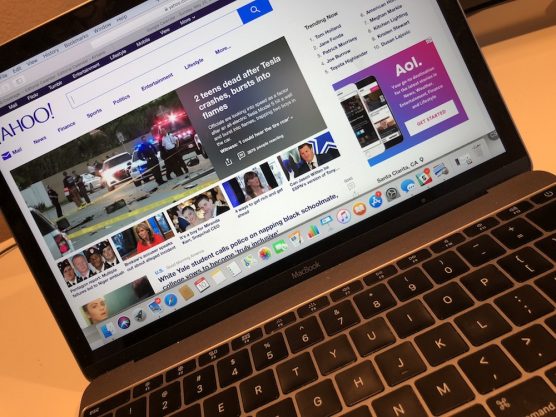By Matthew Renda
(CN) – A coalition of privacy rights groups, civil liberties organizations and California lawmakers championed a bill Wednesday aimed at strengthening internet privacy laws while giving consumers direct control over their personal data.
The Electronic Frontier Foundation, the American Civil Liberties Union and Consumer Advocate all released statements endorsing Assembly Bill 1760, which would give consumers rights regarding the management of their personal data. That includes the right to request businesses delete personal information they collect.
“For far too long, tech companies have been able to play fast and loose with our personal information – and Cambridge Analytica, massive data breaches, and online discrimination have been the result,” said Nicole Ozer, technology and civil liberties director for the ACLU of California. “It’s time to make sure rights are real for all Californians and we have the power to protect our privacy, personal safety and financial security.”
Facebook, Google and other companies that gather personal data and make money by either selling it to other companies or by creating targeting advertising are squarely in the crosshairs of the new law.
AB 1760 is sponsored by recently elected Assemblywoman Buffy Wicks, D-Oakland.
“Companies are making enormous profits off the sharing, use, and even abuse of consumers’ data – we need to level the playing field,” Wicks in a statement Wednesday. “Consumers should have the right to find out what data companies have collected on them, how that information is being used, and to stop their personal information from being shared and sold.”
While a significant slice of consumers have long realized companies like Facebook make money by collecting their personal preferences and either selling the information to third parties or use it to target specific advertisements at users, the Cambridge Analytica scandal elevated scrutiny of the practice.
In March 2018, Christopher Wylie, a former employer of the data mining firm, revealed Cambridge Analytica had gathered the personal data of millions of users and deployed that information in tactical ways in various elections worldwide – including the 2016 U.S. presidential election and the referendum on United Kingdom’s membership in the European Union more commonly known as Brexit.
But for organizations like EFF, Cambridge Analytica is only one of countless scandals, including the many data breaches where personal information like social security numbers, bank accounts, addresses, passwords, dates of birth and more are stolen from databases and then bartered or sold on the dark web.
The credit scoring company Equifax, insurance giant Anthem, internet bigwig Yahoo and the ride-hail upstart Uber have all been plundered by hackers after the personal information of their customer bases.
“When it comes to protecting our own privacy, consumers are at a huge disadvantage,” Haley Tsukayama, a legislative activist with EFF wrote on Wednesday. “Companies know what they collect, how they use it, and who they share it with.”
Tsukayama and others want the playing field leveled.
One of the major components of the proposed law is to give consumers a vested legal right to take companies to court if they fail to protect their personal data. It also provides consumers with tools to determine which companies retain their personal data, how much and what type of data can be retained, and the right to demand companies delete the data they collect.
The bill is at the beginning of the legislative process, but several lawmakers in California have expressed a desire for more robust protections for individual internet privacy. Governor Gavin Newsom discussed privacy during his annual State of the State address in January.
“California is proud to be home to technology companies determined to change the world,” he said. “But companies that make billions of dollars collecting, curating and monetizing our personal data have a duty to protect it. Consumers have a right to know and control how their data is being used.”
Like this:
Like Loading...
Related





 Tweet This
Tweet This Facebook
Facebook Digg This
Digg This Bookmark
Bookmark Stumble
Stumble RSS
RSS


























REAL NAMES ONLY: All posters must use their real individual or business name. This applies equally to Twitter account holders who use a nickname.
0 Comments
You can be the first one to leave a comment.